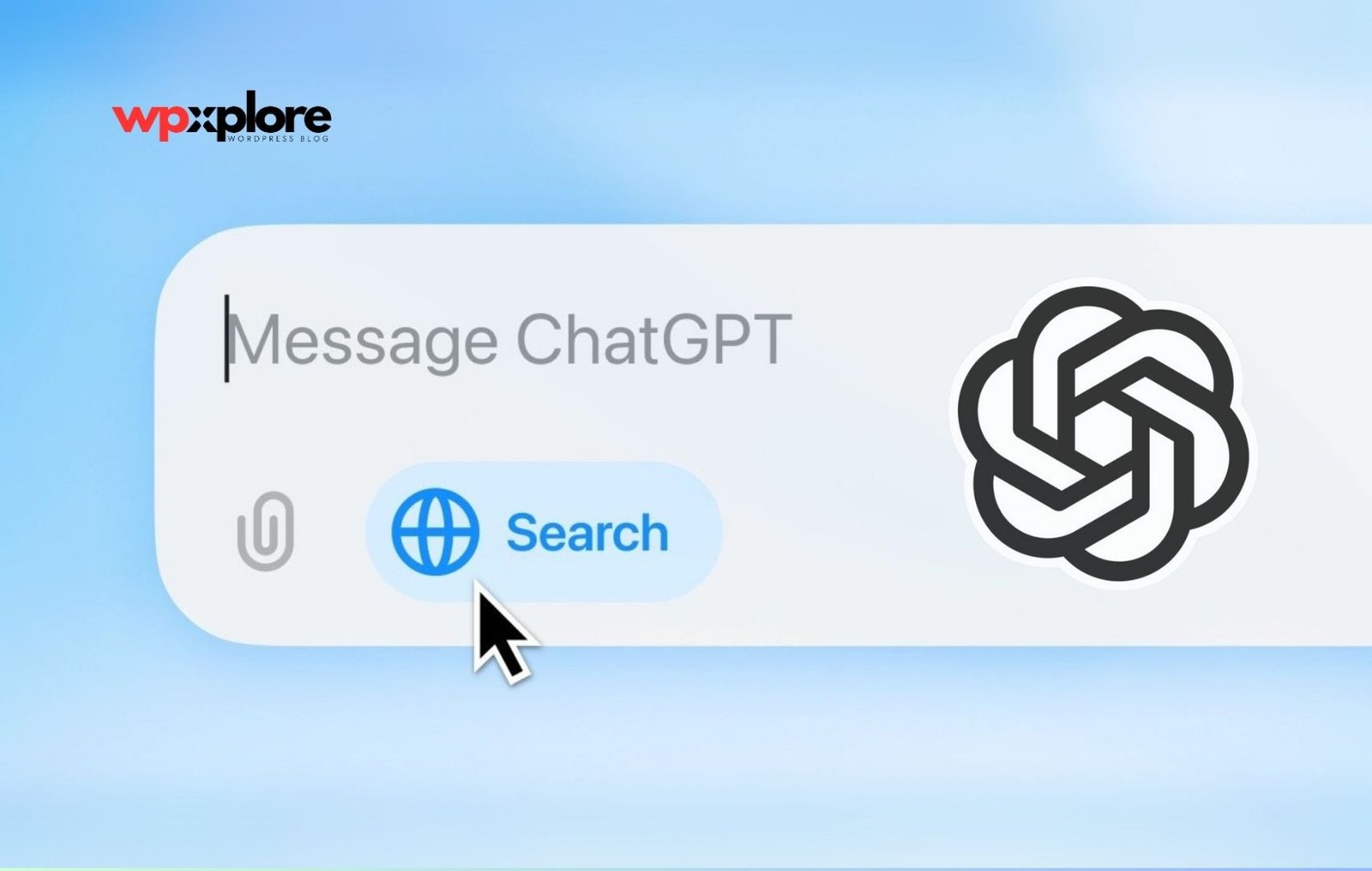Listen To The Podcast on This Article
Why is ChatGPT making waves in the search engine world, and what does it mean for your content? While traditional SEO strategies still hold value, the rise of AI-powered search engines like ChatGPT demands a new approach. It’s no longer just about keyword stuffing or backlinking; it’s about optimizing content for AI comprehension and user intent.
As more and more people rely on AI to find information, the stakes are higher than ever. To ensure your content stands out in this new landscape, you need to understand how AI “thinks” and how it processes information.
This article will explain how this technique can help you rank on ChatGPT Search Engine and similar AI-powered search engines. By learning these strategies, you can position your content to be discovered by these platforms and reach a wider audience. Let’s unlock the potential of ChatGPT SEO together!
ChatGPT boasts over 200 million weekly active users, including 67.7 million from the United States
Understanding ChatGPT Search Engine
Contents
- Understanding ChatGPT Search Engine
- Comparison Table of Traditional SEO vs. ChatGPT SEO
- How to Rank on ChatGPT Search Engine
- 1. Create high-quality, relevant content
- 2. Optimize for Natural Language Processing (NLP)
- 3. Structure content for skimmability
- 4. Optimize meta tags and descriptions
- 5. Build content authority and reliability
- 6. Incorporate interactive content
- 7. Develop authority in your niche
- 8. Encourage user engagement signals
- 9. Utilize AI-friendly SEO tools
- 10. Leverage multimedia and interactive elements
- The Future of Traditional SEO & ChatGPT SEO
- Final Note
- FAQs – Rank on ChatGPT Search Engine
- 1. What is ChatGPT SEO?
- 2. How can I rank on ChatGPT Search Engine?
- 3. What is natural language processing (NLP) in SEO?
- 4. Why is content quality important for ChatGPT Search?
- 5. Can keyword research improve my ranking on ChatGPT?
- 6. How does structure affect ChatGPT ranking?
- 7. What are rich snippets, and how do they help SEO?
- 8. How often should I update my content for ChatGPT Search?
- 9. What role does user engagement play in ChatGPT SEO?
- 10. Can I use multimedia to rank higher on ChatGPT?
As AI changes how we search for information, it’s important to understand how ChatGPT Search works. Unlike traditional search engines like Google, ChatGPT uses AI to provide answers more conversationally, so you need to adjust your content strategy to rank well.
i. What is ChatGPT Search Engine?
ChatGPT Search Engine is an AI-powered search engine that uses OpenAI’s language model to give users answers in a natural, conversational format. Instead of just listing websites, ChatGPT understands the intent behind a question and provides a detailed, human-like response.
Example: If you search “What’s the best way to learn SEO?” ChatGPT would give you a detailed answer, like a conversation, instead of just showing links to SEO blogs.
ii. How it works
ChatGPT Search Engine interprets your query and pulls information from various sources to create one answer. It doesn’t just return a list of links like Google but synthesizes the data to give a clear, direct response to the user’s question.
iii. How is it different from Google?
While Google ranks pages based on keywords and backlinks, ChatGPT focuses on understanding the context of the question and delivering the best answer in one place. For example, if you search for “How to make a cake,” Google might show links to cake recipes, while ChatGPT would summarize a full recipe in the search results.
iv. Why ranking on ChatGPT matters?
Ranking well on ChatGPT can help you get more visibility and traffic. As more people use AI for quick answers, your content has a better chance of being featured directly in ChatGPT’s responses, giving you more exposure.
v. The benefits of ranking on ChatGPT search
When your content ranks on ChatGPT, it’s more likely to be shown directly in the AI’s response, leading to more clicks and engagement. For example, if someone asks a question that matches your content, ChatGPT might show your article as the answer.
vi. Impact on visibility and engagement
Being featured in ChatGPT’s search results means more people will see and engage with your content. Since the AI answers right in the search, users are more likely to interact with the response, driving higher engagement. By optimizing your content for ChatGPT, you increase the chances of reaching a wider audience.
The OpenAI website attracts more than 1.6 billion visitors monthly
Comparison Table of Traditional SEO vs. ChatGPT SEO

How to Rank on ChatGPT Search Engine
Ranking on ChatGPT requires a clear and practical strategy. Here’s how you can optimize your content to rank better in AI-powered searches:
1. Create high-quality, relevant content
Your content should directly meet the needs of users and provide value. Here’s how to do it:
i. Answer user intent
Make sure your content answers the questions users are asking. For example, if people often search “how to start a blog,” create content that provides step-by-step instructions, tips, and answers to common challenges.
ii. Depth and breadth
Provide detailed answers covering all related aspects. If you’re writing about “how to start a blog,” you might include sections on choosing a domain name, setting up hosting, picking a theme, and creating content. This gives users a complete guide and increases their chances of ranking higher.
iii. Up-to-date information
Keep your content current. For example, if you’re writing about SEO, include the latest trends, like the importance of AI in search engine optimization, rather than outdated strategies.
2. Optimize for Natural Language Processing (NLP)
Since ChatGPT understands language the way humans do, writing naturally is essential.
i. Use conversational language
Write in a friendly, easy-to-understand tone. For instance, if you’re explaining how to install WordPress to your website, write it like speaking to a friend, “How to Install WordPress,” rather than using stiff, technical jargon.
ii. Employ relevant keywords in context
Instead of stuffing your content with keywords like “SEO ranking tips,” use them naturally. For example, “If you aim to improve your SEO ranking, focus on creating quality content that answers users’ questions.” This sounds more like a conversation.
iii. Incorporate related keywords
Use terms related to your main topic. If your article is about SEO, you might include keywords like “on-page SEO,” “backlinks,” and “content optimization” to cover all relevant angles.
3. Structure content for skimmability
Make your content easy to read and understand quickly.
i. Headers and subheaders
Use clear headers to organize your content. For example, instead of just writing a long paragraph about SEO, break it up with subheadings like “What is SEO?”, “Why SEO is Important,” and “SEO Tips for Beginners.”
ii. Bullet points and lists
Use bullet points to highlight key takeaways. For instance, when listing SEO tips, use bullet points like this:
- Research long-tail keywords
- Optimize your page titles
- Build quality backlinks
iii. Concise and focused paragraphs
Keep paragraphs short. Instead of a long paragraph explaining SEO, break it into shorter, focused sections. For example, one paragraph can explain keyword research, while the following one talks about optimizing images.
Even though meta descriptions don’t directly affect rankings, they still influence click-through rates, which can improve visibility.
i. Engaging meta descriptions
Write compelling meta descriptions that make people want to click. For example, your meta description for an article about SEO tips could be: “Want to rank higher on Google? Check out these ten proven SEO tips to boost your website’s visibility!”
ii. Clear, relevant titles
Create titles that reflect the content and align with users’ searches. For instance, a title like “Top 10 Blog Writing Tips” matches the search query and clarifies what the article is about.
Your content should be seen as trustworthy to gain credibility with the ChatGPT Search Engine.
i. Backlinking and citations
When you reference trusted sources or link to authoritative sites, AI recognizes your content as reliable. For example, if you mention recent SEO statistics from a well-known site like Moz, linking to that source helps establish your content’s authority.
ii. Updating older content
Keep your content fresh. For example, if you wrote a post about social media strategies two years ago, update it with the latest trends, such as the rise of TikTok or changes in Instagram’s algorithm.
6. Incorporate interactive content
Interactive elements increase user engagement, which is a positive signal to AI.
i. FAQs and answer formats
Add FAQs or Q&A sections to help users find answers quickly. For instance, if your post is about WordPress plugins, you might have a “Frequently Asked Questions” section where you answer common queries like, “How do I install a plugin on WordPress?”
ii. Use of rich snippets
Use structured data (like schema markup) to help search engines better understand your content. For example, using FAQ schema for your Q&A section allows ChatGPT to recognize it as valuable information to display.
To stand out in ChatGPT’s search results, focus on becoming an expert in a specific area.
i. Focus on niche topics
Write detailed, high-quality content about a specific niche. For example, if you’re an expert in WordPress themes, create content focusing solely on the best themes for particular industries like restaurants, blogs, or e-commerce sites.
ii. Engage on AI-driven platforms
Contribute to forums and discussions related to your niche. Engaging with others on platforms like Reddit or Quora helps AI see you as a credible source of information in your field.
8. Encourage user engagement signals
User interactions show that your content is valuable.
i. Click-through rate (CTR)
Make your titles and descriptions enticing. If you write a post about “Best SEO Tools for 2024,” make sure the title encourages people to click by highlighting helpful something, like “Top Picks for Bloggers.”
ii. Time on page and bounce rate
Create engaging content that keeps users on your page longer. For example, if your post is about SEO strategies, provide interactive elements like a quiz or checklist that encourages users to stay and explore more.
9. Utilize AI-friendly SEO tools
Many tools can help optimize your AI content.
i. Semantic SEO tools
Tools like SurferSEO or Clearscope can help you find keywords related to your main topic. For example, if you’re writing about SEO tips, these tools can help you find relevant terms like “on-page SEO,” “keyword research,” and “SEO tools.”
ii. Content gap analysis
Identify gaps in your content where you could add more detail. For instance, if your article on WordPress plugins doesn’t mention performance optimization, adding that information could make your content more comprehensive.
10. Leverage multimedia and interactive elements
Multimedia can help keep users engaged and make your content more appealing.
i. Video summaries and images
Add videos or images that enhance the content. For example, you could include a video showing how to install a WordPress plugin or use pictures to illustrate key concepts.
ii. Interactive Tools
Create interactive quizzes or calculators. For example, if you’re writing about SEO, you might create an SEO audit tool that lets users check their website’s SEO performance.
By following these simple strategies, you’ll be well on your way to ranking higher in the ChatGPT search engine.
The Future of Traditional SEO & ChatGPT SEO
- A Symbiotic Relationship: Traditional SEO and ChatGPT SEO can work together. Traditional SEO can provide a strong foundation, while ChatGPT SEO can help fine-tune content for AI-driven search.
- AI-Driven Personalization: AI will enable highly personalized search results, tailoring content to individual user preferences and search intent.
- Voice Search Optimization: As voice search becomes more prevalent, optimizing content for natural language queries will be crucial.
- Visual Content Dominance: AI-powered image and video analysis will enhance the importance of visual content in SEO.
- Ethical SEO Practices: As AI becomes more sophisticated, ethical considerations will be paramount. Transparent, honest, and user-centric SEO practices will be essential.
- Continuous Learning and Adaptation: The SEO landscape is constantly evolving. Staying updated on the latest trends and adapting strategies will be crucial to success.
By understanding the interplay between traditional and AI-powered SEO, businesses can position themselves for long-term success in the digital age.
Over 92% of Fortune 500 companies have incorporated ChatGPT into their operations
Final Note
To rank well on the ChatGPT Search Engine, create high-quality, relevant content that answers users’ needs. Make sure your content is comprehensive, easy to understand, and up-to-date. It’s essential to write in a conversational tone and organize your content so both users and AI can easily follow it.
These strategies can improve your chances of standing out in AI-driven search results.
Do you have any questions or thoughts on the ChatGPT Search Engine ranking? Feel free to leave a comment below!

FAQs – Rank on ChatGPT Search Engine
1. What is ChatGPT SEO?
ChatGPT SEO refers to optimizing content to rank well on AI-powered search engines like ChatGPT, focusing on natural language, relevance, and user intent.
2. How can I rank on ChatGPT Search Engine?
To rank on ChatGPT, create high-quality, relevant content that answers user questions, optimize for natural language, and structure your content for easy readability.
3. What is natural language processing (NLP) in SEO?
NLP in SEO means using conversational, human-like language in your content, helping AI algorithms better understand and rank your content.
4. Why is content quality important for ChatGPT Search?
High-quality content answers user queries in depth and is seen as more relevant by AI algorithms, improving your chances of ranking higher.
5. Can keyword research improve my ranking on ChatGPT?
Yes, keyword research helps you understand what users are searching for, enabling you to create content that directly addresses those questions.
6. How does structure affect ChatGPT ranking?
Organizing your content with headers, subheaders, and bullet points helps AI models quickly parse and prioritize your information.
7. What are rich snippets, and how do they help SEO?
Rich snippets are structured data like FAQs or how-to guides that help search engines understand your content better, increasing your chances of ranking higher.
8. How often should I update my content for ChatGPT Search?
Regularly updating your content ensures that it stays relevant and accurate, essential for ranking well on AI search engines like ChatGPT.
9. What role does user engagement play in ChatGPT SEO?
High user engagement, such as clicks and time spent on the page, signals to AI that your content is valuable, which can boost your ranking.
10. Can I use multimedia to rank higher on ChatGPT?
Yes, incorporating images, videos, and interactive tools can improve engagement and help AI rank your content more favorably.





Leave a Comment